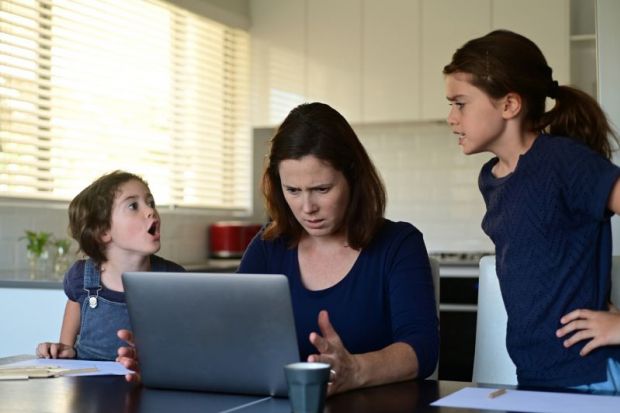Scientists with at least one child aged 5 or younger have seen their research time fall by 17 per cent during the coronavirus pandemic, with women more heavily affected, a survey of US- and Europe-based academics has found.
The study led by researchers at Harvard and Northwestern universities was the largest attempt to explore such pandemic effects by survey, covering 4,535 faculty and principal investigators in the US and Europe.
Numerous other studies using journal publication data have reached similar conclusions about pandemic-related shutdowns imposing disproportionate hardships on female and younger scientists.
Among the implications, according to one analysis from the University of Oxford, is that Covid-19 research will overlook concerns specific to women when scientists and policymakers develop solutions.
The new survey, published in Nature Human Behaviour, puts particular emphasis on childcare, more so than gender discrimination, as the problem that universities should tackle if they hope to see improvement.
In general, the survey found, female scientists reported a decline in research time 5 per cent greater than that experienced by men. But that margin was far outdistanced by the 17 per cent decline associated with having a young child in the house, it found.
The implication, said a lead author of the study, Dashun Wang, an associate professor of management and organisations at Northwestern, was that corrective moves by universities could be failing both women and men by looking in the wrong place.
“If institutions start to think about policies that target gender interventions, and ignore the underlying factors of childcare, then you actually would exacerbate the real impact of the pandemic,” Dr Wang said.
“Childcare, apart from birth, is basically a policy that universities or funders have really rarely considered,” he said. “Whereas gender is kind of a more familiar issue.”
The additional effects on women identified in the survey, said another lead author, Kyle Myers, an assistant professor of business administration at Harvard, could partly reflect the higher prevalence of single mothers compared with single fathers in the US.
The survey involved the 4,535 responses received within a week of its distribution on 13 April.
Along the disparities tied to childcare, the survey identified substantial declines in work time associated with work involving physical labs. Across bench sciences such as biochemistry, biological sciences, chemistry and chemical engineering, scientists reported working as much as 30 per cent to 40 per cent below their pre-pandemic averages.
Across all fields, total working hours fell from an average of 61 hours to 54 hours. That 11 per cent decline was outpaced by a 24 per cent drop in hours devoted to research, the survey found.
Register to continue
Why register?
- Registration is free and only takes a moment
- Once registered, you can read 3 articles a month
- Sign up for our newsletter
Subscribe
Or subscribe for unlimited access to:
- Unlimited access to news, views, insights & reviews
- Digital editions
- Digital access to THE’s university and college rankings analysis
Already registered or a current subscriber? Login







